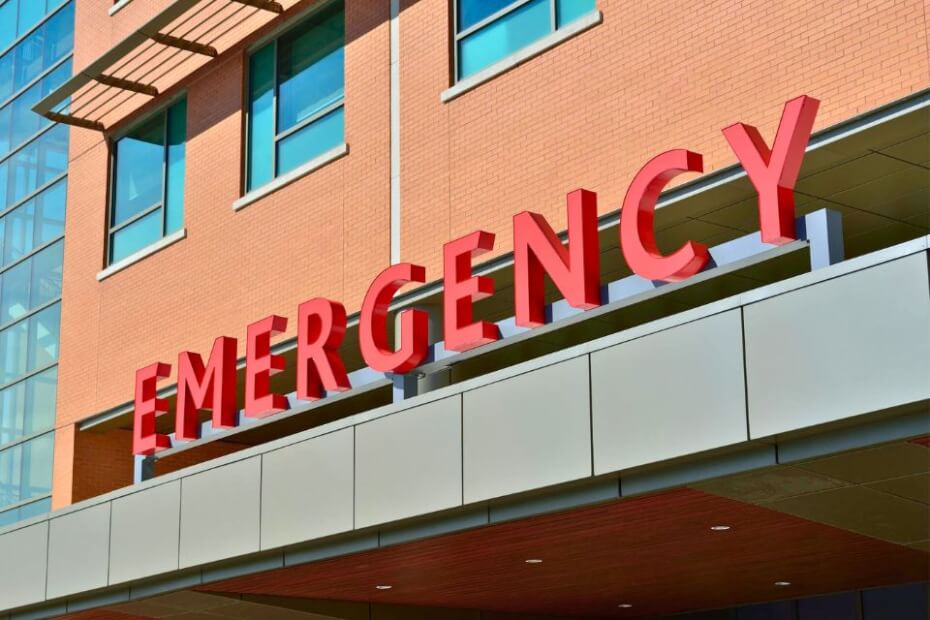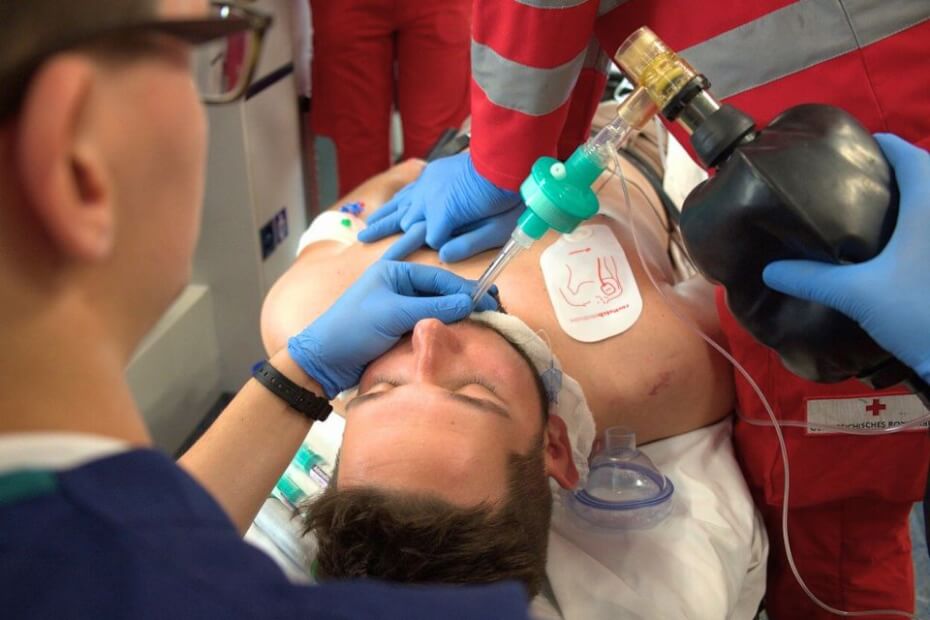
Many non-visa visitors seek clarity on healthcare access during their stay in the United Kingdom (UK) on an Electronic Travel Authorisation (ETA).
Visitors, especially European nationals, who used to travel freely in and out of the UK and access healthcare when it was still part of the European Union (EU), worry they wouldn’t be able to now.
Here, we provide an overview of the National Health Service (NHS) provisions for international travelers, particularly those from the EU. It outlines the implications of the upcoming UK ETA.
The UK ETA and access to healthcare
Starting 2 April 2025, all non-visa travelers must obtain a UK ETA before coming to the UK. This includes travelers from EU countries, the United States, Canada, and more.
This digital authorization scheme is part of a broader strategy to digitize and enhance the country’s border security.
The ETA is also designed to streamline immigration checks for visitors who do not need a visa. However, it’s important to note that the UK ETA does not give visitors the right to access free healthcare services, except for emergency treatment, within the UK.
NHS Services: What’s Free and What’s Not
The UK’s NHS provides a range of healthcare services, some of which are free at the point of use. Still, others may incur charges, especially for visitors. Here’s a breakdown:
Emergency Treatment
Regardless of nationality or residency status, all individuals are entitled to free emergency treatment at NHS Accident and Emergency (A&E) departments. This includes immediate care for accidents or sudden illnesses.

Aside from emergencies, all visitors will not be charged for COVID-19 testing, treatment, and vaccination.
Additionally, family planning services are free, except for abortions, infertility treatments, and treatment for most infectious diseases, including sexually transmitted infections (STIs).
Non-Emergency Treatment
For non-urgent medical issues, visitors may be required to pay for services. The cost can vary depending on the treatment and the visitor’s country of residence. It’s advisable to have comprehensive travel health insurance to cover such expenses.
How to access non-urgent NHS care
Non-urgent issues should be addressed by a General practitioner (GP). GPs can direct individuals to other NHS services or experts in particular fields.
To consult a GP, visitors typically must register with a local practice, often reserved for long-term visa holders (e.g., students and workers).
Long-term visa holders pay an immigration health surcharge (IHS) depending on how long they stay in the UK. They pay for this along with their visa application fees. This gives them access to some benefits and healthcare during their stay.
On the other hand, visitors who stay for up to six months in the UK do not pay IHS and, therefore, do not have access to free healthcare in the UK, except for emergencies. However, they could still consult a GP.
Temporary registration for short stays of a day to three months is still possible at the GP’s discretion. Still, it’s crucial to note that while registration may allow access to free NHS screenings, other treatments might require payment.
EU visitors’ access to healthcare in the UK
The UK has a residence-based healthcare system, meaning care and treatment depend on whether the person is legally in the UK. This means that visitors staying in the UK for up to six months do not typically have access to healthcare.
However, despite the UK’s departure from the EU, certain healthcare arrangements remain in place for EU visitors.

European Health Insurance Card (EHIC)
EU residents can use a valid EHIC to access necessary healthcare during temporary visits to the UK. This typically covers treatment necessary during your stay, such as emergencies or pre-existing conditions requiring prompt attention.
However, the EHIC does not cover planned treatments or non-urgent care. It does not cover any private medical healthcare, transportation of being flown back home, or lost or stolen property. It is advisable to have both an EHIC and a valid private travel insurance policy.
Those whose EHIC has been lost or stolen during their visit to the UK must contact the relevant organization in their home country to request a Provisional Replacement Certificate (PRC). Otherwise, they must pay for NHS care.
Reciprocal healthcare agreements
The UK has reciprocal healthcare agreements with some EU countries, allowing visitors to receive specific treatments either free or at a reduced cost. It’s essential to check the specifics of these agreements before traveling.
Special exemptions
Some individuals do not have to pay for NHS healthcare. These are:
- Members of the UK armed forces, war pensioners, and their dependants if they are lawfully present in the UK.
- Vulnerable patients, detainees, workers on ships, and NATO personnel.
- Victims of torture, female genital mutilation, domestic violence, and sexual violence.
- Registered refugees or asylum seekers awaiting a decision on their status.
ETA vs. Standard Visitor visa on accessing healthcare in the UK

Similar to the Standard Visitor visa, UK visitors on an ETA allow access to NHS services in case of emergencies. However, there are some differences in healthcare access and eligibility for other services compared to those coming to the UK on a Standard Visitor visa specifically for medical treatment.
Here is a quick breakdown of the similarities and differences between an ETA and a visa regarding healthcare access.
| Type of care | ETA | Standard Visitor visa |
| Eligibility | Non-visa visitors | Visa-required visitors and those denied an ETA |
| Length of stay | Up to six months with no option to extend | Up to six months with an option to extend depending on treatment |
| NHS Emergency Care | Free treatment at NHS A&E departments | Free treatment at NHS A&E departments. |
| NHS Non-Urgent Care | Paid; not typically available for short-stay travelers unless with European or global healthcare insurance. | Paid; travelers may seek treatment but must cover costs upfront unless it will delay treatment, in which case they must still pay after. |
| Planned Medical Treatment | Typically not allowed unless eligible for medical treatment and satisfies all Standard Visitor visa requirements for those seeking medical treatment in the UK; should not exceed six months’ stay | Allowed only if the Standard Visitor Visa is specifically for medical purposes and the traveler satisfies all other requirements. |
| Insurance Requirement | Strongly recommended; no automatic NHS coverage. | Strongly recommended; no automatic NHS coverage. |
Both visitors on an ETA or Standard Visitor visa are advised to carry comprehensive health insurance. Neither of them guarantees free access to NHS services beyond emergencies.
Travelers with a Standard Visitor visa can enter the UK specifically for a planned medical treatment or organ donation if declared and approved during the visa application process. They can also extend their stay if they need more time for treatment.
On the other hand, travelers on an ETA may visit the UK for up to six months for medical treatment.
However, they must satisfy the exact requirements under a Standard Visitor visa for those seeking medical treatment in the UK. They do not have the option to extend their stay.
Recommendations for UK visitors

To ensure a safe and worry-free visit to the UK, consider the following steps:
Carry a valid EHIC or PRC
If you’re an EU resident, ensure your EHIC is valid and bring it with you. This will facilitate access to necessary healthcare services during your stay.
Secure comprehensive travel insurance
An EHIC may not cover all medical expenses, especially for non-urgent treatments. Comprehensive travel insurance can provide additional coverage, including repatriation costs and private healthcare services.
Understand NHS charges
Be aware that certain NHS services may incur charges for visitors. It’s prudent to inquire about potential costs before receiving treatment. Visitors who do not have EHIC may be charged 150 percent of the current NHS rates.
Future ETA or visa applications of individuals with unpaid NHS treatment charges may be denied. The NHS reports those with NHS debts of £500 or more for over 2 months to the Home Office.
Final thoughts
While the UK ETA will soon become a requirement for EU travelers, it does not alter the existing healthcare provisions for visitors. Access to NHS services remains available, particularly for emergencies.
Still, it’s crucial to be prepared for potential charges and to have appropriate insurance coverage. By taking these steps, visitors can enjoy their time in the UK with greater peace of mind.

